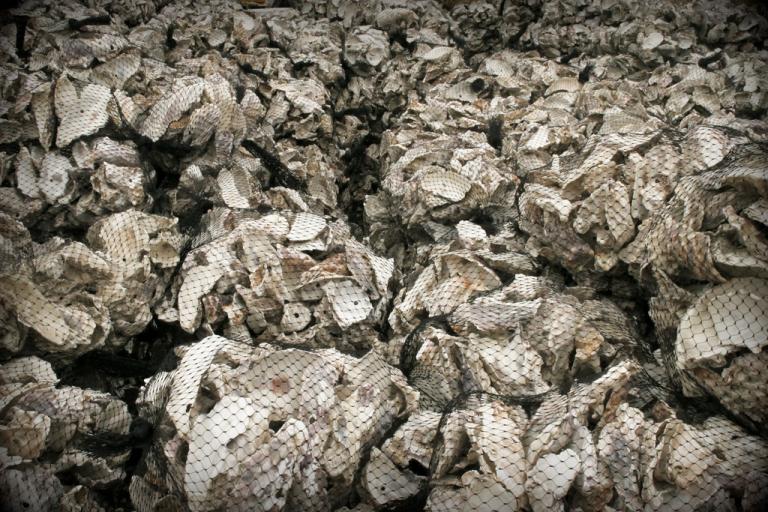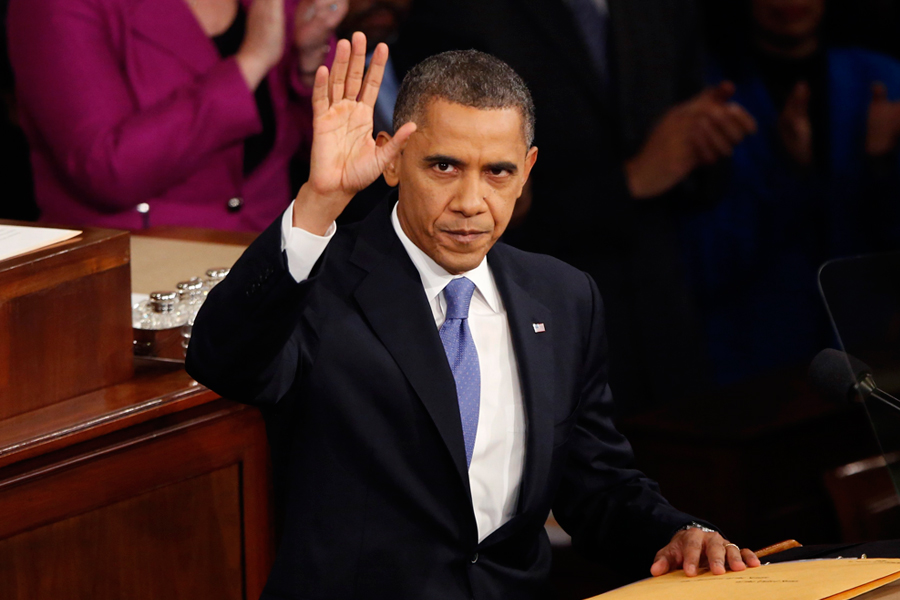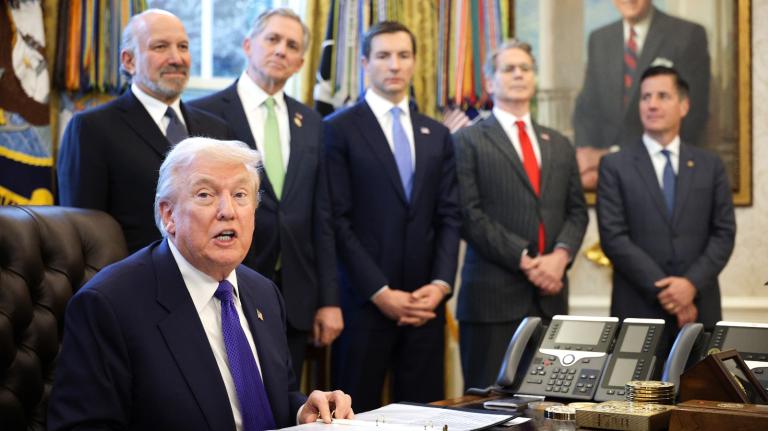Obama threw the climatespotters a bone in his State of the Union speech on Tuesday night. Multiple bones, even.
For all you climatespotters: the number is 3.
— David Roberts (@drgrist) February 13, 2013
That is, the president said the words “climate change” three times during the address, and made a mention of “dangerous carbon pollution” to boot. That’s compared to just one mention of “climate” in his 2012 SOTU, and zilch in 2011, for those of you keeping score at home.
This year’s climate callouts weren’t a surprise — Obama paved the way with his inaugural address last month, and in recent days his advisers had been hinting strongly that climate change would get a substantial nod in the speech.
Even though he also lauded increased oil and gas drilling, the section on energy and climate was substantial enough to encourage some greens:
The President’s call to put a price on carbon pollution and solve the climate crisis was bold and meaningful. We must act now. #sotu
— Al Gore (@algore) February 13, 2013
“[F]or the sake of our children and our future, we must do more to combat climate change,” Obama said. He noted that “the 12 hottest years on record have all come in the last 15. Heat waves, droughts, wildfires, and floods — all are now more frequent and intense.”
He called on Congress to pass a “market-based” climate plan like the McCain-Lieberman bill of yore, but he knows that won’t happen, so he followed right up by saying, “if Congress won’t act soon to protect future generations, I will. I will direct my Cabinet to come up with executive actions we can take, now and in the future, to reduce pollution, prepare our communities for the consequences of climate change, and speed the transition to more sustainable sources of energy.”
What might those executive actions be? David Roberts laid out possibilities earlier this week: The biggie would be regulating carbon pollution from existing power plants. Others include curbing methane emissions from natural-gas drilling and developing new efficiency standards for appliances and equipment.
Of course, the single most high-profile thing Obama could do to signal that he’s serious about climate change would be to reject a permit for the Keystone XL pipeline. He neglected to mention that issue in his speech, and his administration keeps kicking the can down the road. A decision might now be delayed until as late as June. But climate activists aren’t sitting around waiting; they’ll be staging a big anti-Keystone protest on Obama’s doorstep this Sunday.
Obama’s lines in the SOTU about “produc[ing] more oil at home than we have in 15 years” and “cutting red tape and speeding up new oil and gas permits” show that he’s far from ready to leave the oil industry behind. (But, hey, at least he didn’t mention coal.)
More disheartening was the lack of enthusiasm Obama showed for the climate fight. Yes, he said some good stuff and demonstrated that he thinks the problem is serious, but he was much more passionate about other issues, like raising the national minimum wage to $9 an hour and providing universal preschool. He even sounded more worked up about cyber attacks than about climate chaos. And his rousing, powerful calls for new gun-control legislation electrified the Capitol, showing what it’s like when he really cares about an issue and intends to put serious muscle behind it.
After a year of near-silence on climate change, it’s good to have the president talking about it again. But so far it’s just talk.
—–
Here’s the full text of the climate and energy section of the speech:
After years of talking about it, we are finally poised to control our own energy future. We produce more oil at home than we have in 15 years. We have doubled the distance our cars will go on a gallon of gas, and the amount of renewable energy we generate from sources like wind and solar — with tens of thousands of good, American jobs to show for it. We produce more natural gas than ever before — and nearly everyone’s energy bill is lower because of it. And over the last four years, our emissions of the dangerous carbon pollution that threatens our planet have actually fallen.
But for the sake of our children and our future, we must do more to combat climate change. Yes, it’s true that no single event makes a trend. But the fact is, the 12 hottest years on record have all come in the last 15. Heat waves, droughts, wildfires, and floods — all are now more frequent and intense. We can choose to believe that Superstorm Sandy, and the most severe drought in decades, and the worst wildfires some states have ever seen were all just a freak coincidence. Or we can choose to believe in the overwhelming judgment of science — and act before it’s too late.
The good news is, we can make meaningful progress on this issue while driving strong economic growth. I urge this Congress to get together, pursue a bipartisan, market-based solution to climate change, like the one John McCain and Joe Lieberman worked on together a few years ago. But if Congress won’t act soon to protect future generations, I will. I will direct my Cabinet to come up with executive actions we can take, now and in the future, to reduce pollution, prepare our communities for the consequences of climate change, and speed the transition to more sustainable sources of energy.
Four years ago, other countries dominated the clean energy market and the jobs that came with it. We’ve begun to change that. Last year, wind energy added nearly half of all new power capacity in America. So let’s generate even more. Solar energy gets cheaper by the year — so let’s drive costs down even further. As long as countries like China keep going all-in on clean energy, so must we.
In the meantime, the natural gas boom has led to cleaner power and greater energy independence. That’s why my Administration will keep cutting red tape and speeding up new oil and gas permits. But I also want to work with this Congress to encourage the research and technology that helps natural gas burn even cleaner and protects our air and water.
Indeed, much of our newfound energy is drawn from lands and waters that we, the public, own together. So tonight, I propose we use some of our oil and gas revenues to fund an Energy Security Trust that will drive new research and technology to shift our cars and trucks off oil for good. If a non-partisan coalition of CEOs and retired generals and admirals can get behind this idea, then so can we. Let’s take their advice and free our families and businesses from the painful spikes in gas prices we’ve put up with for far too long. I’m also issuing a new goal for America: let’s cut in half the energy wasted by our homes and businesses over the next twenty years. The states with the best ideas to create jobs and lower energy bills by constructing more efficient buildings will receive federal support to help make it happen.




